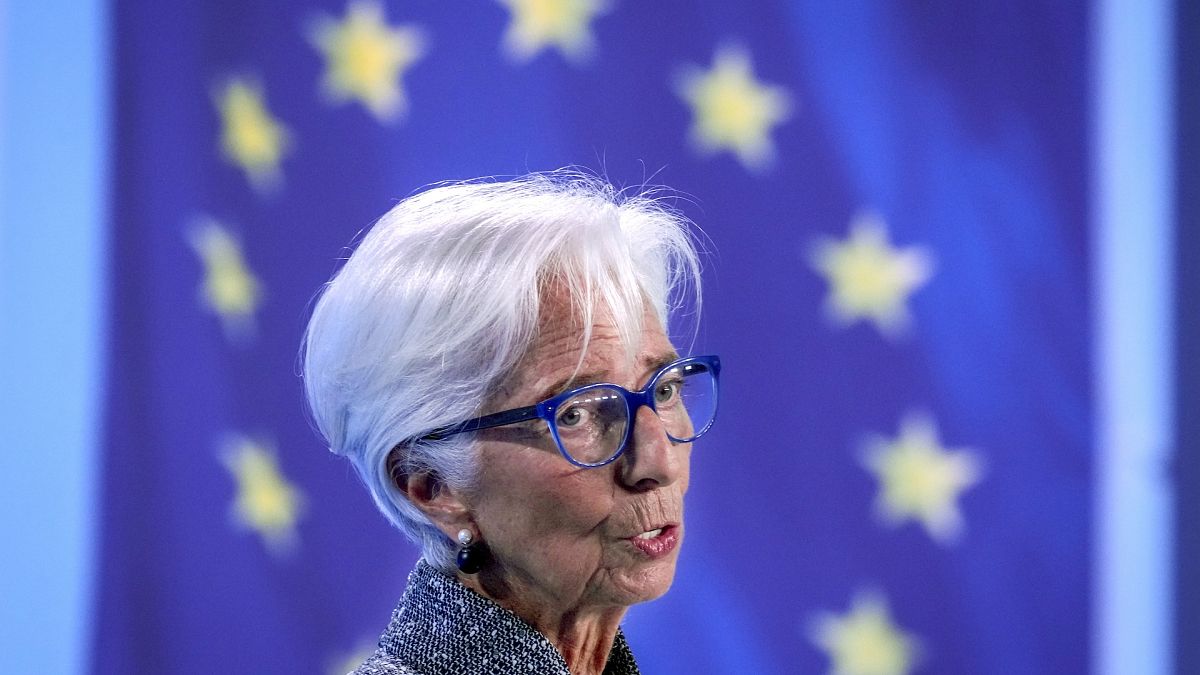ECB’s Christine Lagarde emphasised a cautious, data-driven approach to further rate cuts. She highlighted the need to address productivity gaps, energy costs, and digitalisation, calling for immediate action.
Christine Lagarde, President of the European Central Bank (ECB), has reiterated she will maintain a data-driven approach to monetary policy highlighting that, despite recent disinflationary trends, the ECB is far from pre-committing to an aggressive easing cycle.
In a conversation with Frederick Kempe, President and CEO of the Atlantic Council, Lagarde explained that the ECB’s interest rate decisions would continue to depend on incoming economic data, underlining the need for cautious in assessing the evolving economic conditions.
“We are confident that the disinflationary path is underway and that we could continue to dial back the restrictive monetary policy, but we need to be cautious,” she stated, emphasising that any future cuts will be determined by the data.
While the ECB has already reduced rates in June, September, and October, Lagarde dispelled any notion of a pre-set strategy for rate cuts. “We do not have a linear systematic sequence,” she noted, underscoring the ECB’s flexible, case-by-case approach.
Simultaneously, in Washington DC, Philip Lane, the ECB’s Chief Economist, delivered a cautiously optimistic outlook on the eurozone’s economic recovery at the 2024 IIF Annual Membership Meeting.
Lane acknowledged that, while some recent data raised questions about growth, the ECB did not foresee a dramatic weakening of the eurozone economy.
“A good recovery in the economy is still a plausible baseline,” Lane remarked, pointing to fairly strong wage growth as a positive sign, and reaffirming the ECB’s confidence in the ongoing disinflation process.
European competitiveness gap hinges on productivity, energy, and digitalisation
Turning to broader concerns about European competitiveness, Lagarde highlighted a significant lag in productivity growth compared to the United States.
“US productivity grew by 50% between 1995 and 2020, while Europe’s productivity only increased by 28%. Europe is lagging behind in terms of productivity,” Lagarde remarked, identifying the need for Europe to catch up as a top priority.
Lagarde attributed much of this productivity gap to the continent’s slower adoption of technology. “When you look at the gap between 50% and 28%, you see that a lot of that results from the tech sector,” she observed.
According to the ECB chief, Europe’s next challenge is to pinpoint the sectors that will drive future productivity gains.
In addition to productivity, Lagarde identified high energy costs as a significant hindrance to European competitiveness. She drew attention to stark differences between Europe and the US.
“If you look at the price of energy, it’s about two or three times higher in Europe than it is in the US. If you look at the price of gas [fuel], it’s four to five times higher in Europe.”
Lagarde echoed the recommendations from Mario Draghi’s recent report, advocating for a “rapid and smart decarbonisation of the economy” as a critical solution. This approach, she argued, would ultimately lead to cheaper energy once the necessary investments have been made.
“Europe can lead in terms of non-fossil energies, which would lead to a much cheaper source of energy once the transition is completed,” she said, stressing that this strategy would not only improve competitiveness but also address the growing impacts of climate change.
Capital Markets Union: ‘The urgency of the matter is now’
A third crucial challenge for Europe, according to Lagarde, is digitalisation. She pointed out that Europe significantly lags behind both the US and China in securing the venture capital needed to drive digital innovation.
“If you look at the volume of venture capital that is raised in Europe, it’s minimal relative to what is raised in the US or even China,” she remarked.
To address this, she has long advocated for the creation of a capital markets union – a single, integrated financial market across the eurozone. Such a market would facilitate the necessary capital flows to support technological innovation and digitalisation, thus improving productivity across Europe.
Reflecting on Draghi’s report, Lagarde agreed that Europe must move from identifying problems to implementing solutions.
“This is now going into the weeds and rolling sleeves up and getting the job done,” she noted. “The urgency of the matter is now.”

